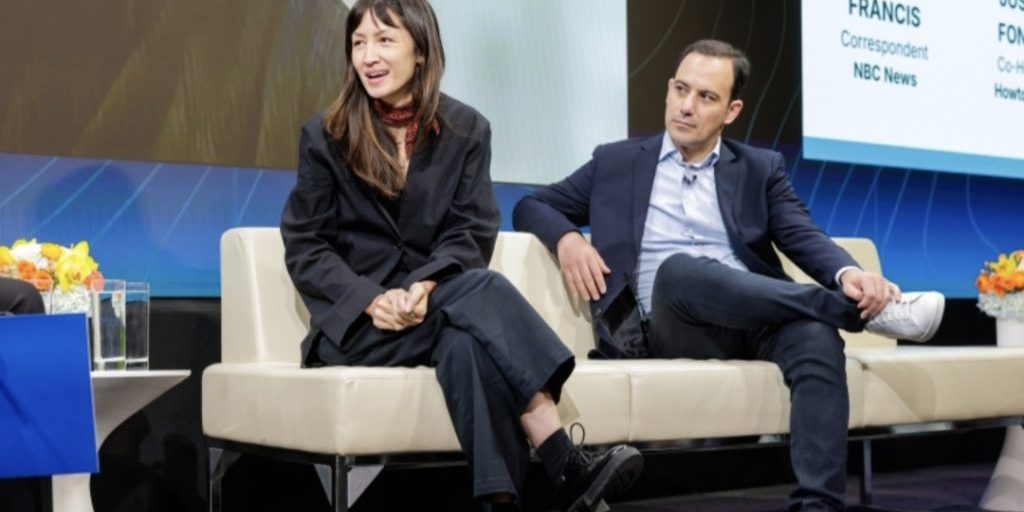Big tech and big threats: the need for a united front in Africa
PICTURE: Pixabay/Pexels
GIBS Media Leadership Think Tank
In recent years, the alarming trend of Big Tech companies like Meta threatening to withdraw from countries in the Global South has raised significant concerns.
This pattern often involves these corporations reinforcing their unaccountable power through ultimatums, whether in response to government mandates for compliance with privacy and transparency laws, or adherence to content moderation policies and fair compensation practices.
The power imbalance between governments and Big Tech corporations often overrides considerations of corporate profit or regulatory procedures.
When these companies threaten to leave specific regions, it also jeopardises the livelihoods of vulnerable and marginalised groups, including rural communities, women, LGBTQ+ persons and youth, who rely on these platforms to engage in the digital and information economy.
The recent threat of Meta leaving Nigeria highlights the need for countries in the Global South to reassess the effectiveness of negotiating with Big Tech independently.
To counteract these tactics, there is a pressing need to develop a unified, human rights-centric response that holds global corporations accountable while safeguarding the digital rights of all users.
Tracking Big Tech’s strategies to curb change in Africa
The battle against Big Tech extends beyond mere market dominance and profit generation. It fundamentally revolves around power dynamics.
In today’s landscape, we find ourselves confronted with a stark asymmetry of power: on one side, nations in the Global Majority face relentless pressure to submit to the demands of these tech platforms, while on the other side, we seek to enforce compliance with our national laws from these same companies.
This situation accentuates the imbalance, as the ultimate goal for Big Tech is to maintain its dominance, leaving countries grappling with a power disparity that can no longer be ignored.
The imbalance is further exacerbated through the strategic deployment of digital extractivism. Given structural inequalities, Global South countries with relatively weak regulatory frameworks are disproportionately disadvantaged, particularly where there is minimal local investment or accountability.
The parasitic relationship observed across various Global South contexts is one where they act as suppliers of raw digital capital and data, with the value generated flowing outward to the benefit of the Global North
This familiar rhetoric of Global South countries as passive recipients of technology feels all too recognisable.
Case studies in resistance
The playground remains uneven, as the coercive exit tactics employed by Big Tech come into play when countries seek to assert their digital sovereignty. Recent examples include Nigeria, Kenya and Brazil, which have taken steps to regulate digital platforms within their borders.
These nations are not only contesting the weaponisation of market dominance that undermines their sovereignty, but are also exposing the fragile dependency on platforms that lack both local accountability and democratic governance. They are also actively reshaping the narrative surrounding the digital governance of both the products and the multinational corporations themselves.
African regulators, along with other regulators in the Global South, are demanding the localisation of data and adherence to national laws.
In Kenya, a significant legal precedent was set when the High Court affirmed that it had jurisdiction over a $2.4-billion case filed against Meta by Ethiopia. The ruling by the Kenyan Court of Appeal further established that content moderators, who claim human rights violations, could bring their cases against Meta within the country’s labour courts.
This landmark decision underscores the emerging trend in which countries like Kenya are asserting their jurisdiction over multinational corporations, challenging the assumption that tech giants can operate above local laws and accountability
In South Africa, the Competition Commission has provisionally recommended that Google pay the South African news media between R300- and R500-million annually to a fund for a period of three to five years due to the anti-competitive practices that Google was engaged in.
Similarly, the Information Regulator issued an enforcement notice against one of Meta’s products, directing that WhatsApp comply with all the conditions of the POPIA by updating its privacy policy.
South Africa has demonstrated that local regulatory bodies can engage and challenge multinational corporations, affirming the narrative of digital sovereignty as a means of empowerment.
Nigeria has made similar strides with its Federal Competition and Consumer Protection Commission’s recent fine requiring Meta to pay $290m for alleged anti-competitive practices, unapproved advertising practices and breach of local privacy laws.
The actions taken by Nigeria suggest that regulatory frameworks need not be merely reactive or symbolic, but can serve as deliberate efforts to protect citizens and enhance their participation in the digital economy.
Call to action
While we commend the bold steps taken by African countries to regain digital sovereignty, one cannot help but question whether the digital hegemony established by these multinational corporations can continue to thrive within the local digital ecosystems.
The answer, as shown above, is simply no.
We must actively reframe the narrative from being portrayed as victims of external pressures to architects of our digital futures. This shift in perspective is crucial; it empowers us to recognise our strengths, innovate within our contexts, and cultivate a digital landscape that reflects our unique identities and aspirations.
However, this challenge cannot be addressed in isolation. We cannot continue to fight as separate entities or countries; there is a pressing need to develop a coordinated Global South framework that not only aligns with the diverse priorities of individual nations but also nurtures collaboration and solidarity among them.
As we pool our resources, knowledge and technological capabilities, we can enhance our collective bargaining power against these global platforms
Recent initiatives such as Media20 (M20), which will be hosted in South Africa, demonstrate this collaborative spirit.
M20 is an independent civil society initiative that mirrors official G20 engagement groups for business, think-tanks and civil society, among others. The programme aims to place media sustainability, independent journalism and information integrity on the global agenda.
As advocated by the Digital Rights Inclusion Forum, it is essential to prioritise a multistakeholder approach ‘where diverse perspectives are considered in decision-making processes … and leverage the expertise of different stakeholders, such as governments, businesses, civil society, technical experts and local communities/users’.
This approach improves the inclusivity and enhances the participation of citizens in a democratic society, ensuring that their needs are met.
It is therefore crucial that we lean on our unique cultural and social context to inform policies that foster innovation, support local entrepreneurship and enhance digital literacy across the board.
In this context, regional collaboration and norm-setting mechanisms like the African Union, become vital. By sharing best practices, pooling resources and fostering collective action, we can create a dynamic ecosystem that nurtures African homegrown solutions.
As we embrace this path towards digital empowerment, we must be vigilant about safeguarding our data, privacy and rights in an increasingly interconnected world
Ultimately, the vision is clear: to build a future where the Global South is not merely an extension of global digital trends dictated by external powers but a thriving hub of innovation and empowerment. Together, we can shape a narrative that celebrates our digital agency and asserts our place in the global digital landscape.
This is the time for unity, collaboration and a shared commitment to building a sustainable and inclusive digital future that truly reflects our values and aspirations.
- Tshamano is the Programme and Research Manager at the GIBS Media Leadership Think Tank




